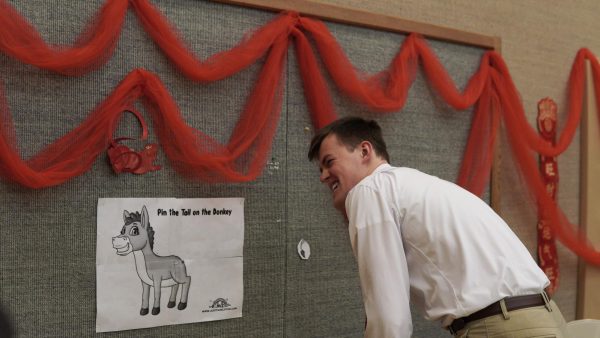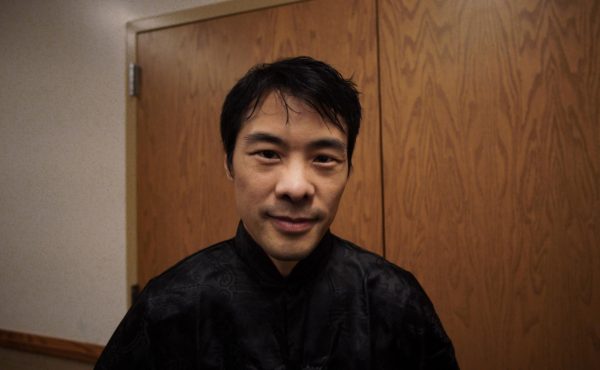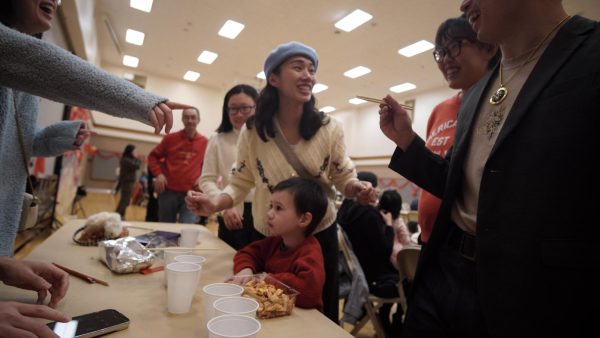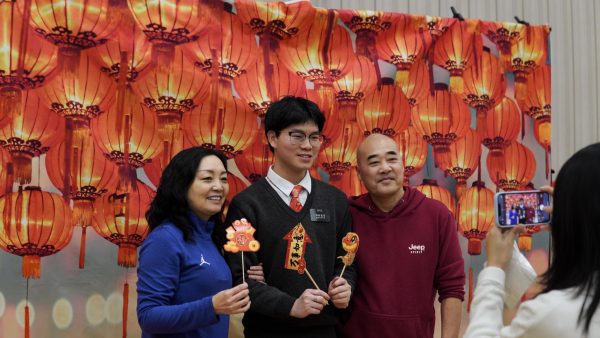The Church of Jesus Christ of Latter-day Saints held a Lunar New Year party celebrating Chinese culture in their Cambridge chapel last Friday night.
Latter-day Saints are assigned on mission trips in their early twenties—a voluntary, self-funded service meant to spread the gospel, often abroad, that requires learning a second language. Sent out in pairs called “companionships,” these full time spiritual journeys last two years for men, and a year-and-a-half for women.
In Boston, there are Spanish, Portuguese, Haitian Creole, and Mandarin-speaking missionaries—the latter of which meet in their Kendall Square chapel on Sundays. The space hosts the only Mandarin-service in Massachusetts, a place for church goers as far as Plymouth, Worcester, and New Hampshire.
Missionary Wesley Dalton grew up celebrating Lunar New Year via dual immersion programs in Utah’s public school systems—half the school day was taught in Mandarin, the other half in English.
“I grew up learning Chinese so I put that in my [mission] application. I was likely going to be sent somewhere Chinese-speaking,” said Dalton.

He wakes up every morning at 6:30 a.m., exercises, eats breakfast, and after meeting church-goers—on the street or otherwise—studies his scriptures and practices Chinese. He used to live in Quincy, but has since relocated to Allston with his mission companion.
Bishop Jay Liu said the former governor of Utah, John Huntsman, who served his mission in Taiwan, recognized the appeal of bilingualism in today’s globalized economy. In 2008, Huntsman signed a bill funding the state’s Dual Language Immersion program. The law provided public schools with an option to educate in both English and a second language, namely Mandarin, leading to a significant number of Mandarin-speaking missionaries.
“When I grew up in Utah, there were no language programs. It’s pretty common now but back then it was just strange to hear someone speak Mandarin,” said Liu.


More than 100 people were in the crowd that night: mostly church members who had brought friends and family, said Assistant to the Bishop Stephen Patterson, who served his mission speaking Mandarin in the U.K.
Zhang Lao Yao, a missionary from Guangzhou, China, was baptized in his friend’s inflatable swimming pool. He explains that in mainland China, Latter-day Saints lack chapel and temple houses because they are not officially recognized by the government, so congregations are often held in friends’ basements. Yao says his aunt, who had converted before him, introduced his family to the religion.
“I was baptized with my mom when I was 10. After that, I was raised in the Church. The gospel is important to me because I believe in family and I believe in God. My mom and dad have found peace through our faith,” said Yao.

There are chapels in Macau and a temple in Hong Kong, which Yao frequently visits, but no missionaries in mainland China—the church can’t advertise online either.
Latter-day Saints are frequently referred to as “Mormons” by the media, according to Yao, but the Church is really about Jesus Christ—and while Mormon is a venerated prophet, it isn’t just his namesake book being studied, but the Old and New Testaments as well. It’d be like referring to Islam as Quran-ism, or Christians as Bible-ists.
“It’s nice to have other Chinese people who know about the significance of Lunar New Year,” said Yao. “I didn’t think there’d be much fanfare in America, but community events like this are nostalgic.”